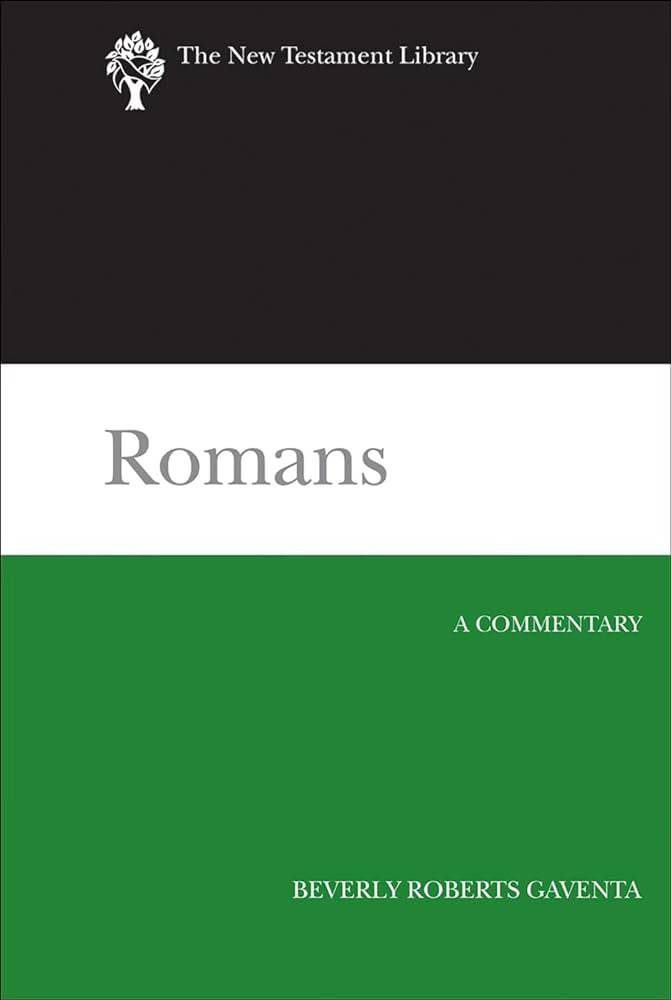Here is a recent conversation with one of my favorite former teachers, Beverly Gaventa, about her new commentary on Romans. You can purchase it here.
Beverly is Helen H. P. Manson Professor Emerita of New Testament Literature and Exegesis at Princeton Theological Seminary. Following her retirement at Princeton, she served as Distinguished Professor of New Testament at Baylor University. In 2016, Gaventa was president of the Society of Biblical Literature. The British Academy awarded her the Burkitt Medal for Biblical Studies in 2020 for her long and distinguished contributions to New Testament scholarship. Her publications range from commentaries on the Acts of the Apostles and the Thessalonian correspondence to studies of Mary, the mother of Jesus, and explorations of maternal imagery in the letters of Paul.
In this new contribution to the New Testament Library, renowned New Testament scholar Beverly Roberts Gaventa offers a fresh account of Paul's Letter to the Romans as an event, both in the sense that it reflects a particular historical moment in Paul's labors and in the sense that it reflects the event God brings about in the gospel Paul represents.
Show Notes
Summary
In this conversation, Beverly Gaventa discusses her new commentary on Romans and the themes within the book. She talks about the last time she cried and the hymn that moved her to tears. She also shares her experience as a parishioner in her son's church and the challenges of preaching Paul's letter to the Romans. Gaventa highlights the importance of understanding the concrete audience of the letter and the role of women in interpreting and delivering it. She emphasizes the need to move people through the letter rather than simply arguing at them. Gaventa also addresses the issue of power and how the recipients of the letter were not the powerful and influential at the center of the empire. She suggests starting with Romans 16 to help people see the diversity of the recipients. Gaventa concludes by discussing the challenges of preaching Paul and the tendency to abstract the letter from its concrete context. In this conversation, Beverly Gaventa discusses the radicality of Paul's gospel and the challenges it presents. She highlights how Paul's unique perspective and interpretation of Scripture can lead to dangerous misunderstandings. Gaventa emphasizes the importance of reading Scripture through the lens of the Christ event and allowing it to speak to us in new ways. She also addresses the difficulties faced by candidates for ministry and offers insights on how to navigate the tension between faithfulness to Scripture and the freedom to proclaim the gospel. The conversation concludes with a discussion on the message of Paul's letter to the Romans, which centers on God's power to redeem and remake the world.
Takeaways
Understanding the concrete audience of Paul's letter to the Romans is crucial for interpretation.
The role of women, like Phoebe, in interpreting and delivering the letter should not be overlooked.
Preaching Paul's letter requires moving people through the text and addressing the tension and challenges it presents.
The recipients of the letter were not the powerful and influential, but rather a diverse group of people.
The themes of power, faith, and the tension between what is promised and what is resonate throughout the book of Romans. Paul's gospel is radical and can lead to dangerous misunderstandings if not approached with caution.
Reading Scripture through the lens of the Christ event allows for new and transformative interpretations.
Candidates for ministry should strive for a deep understanding of individual texts and engage in ongoing study and reflection.
The message of Paul's letter to the Romans is centered on God's power to redeem and remake the world.
Sound Bites
"Our concluding hymn was This Is My Song... and it always causes me to, causes my eyes to leak a little bit."
"I think we live in that tension. There's no escaping."
"The gospel is something that has happened in the recent past for Paul. It is something God has and is doing."
"Paul presses so hard on the divine initiative... that sometimes we are led into territory that is really quite not just frightening, but dangerous."
"We have to let him, we have to hear that."
"The scriptures is like this living tradition that we can use for the purpose of proclamation."


















Share this post